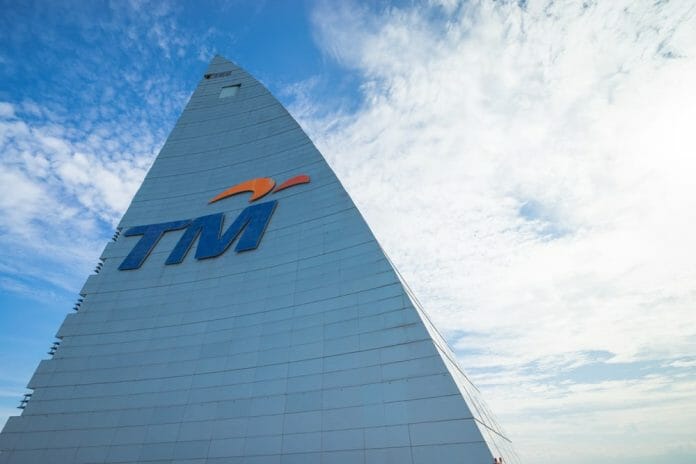RAM Ratings has reaffirmed the AAA/Stable/P1 ratings of Telekom Malaysia Berhad’s RM3 billion Islamic CP/MTN Programme (2013/2033) and RM4 billion Islamic CP/MTN Programme (2018/2048) sukuk.
The ratings are anchored on the group’s continued dominance in the local fixed-broadband and fixed-line services and telecommunication industry. TM’s critical role and strong relationship with the Government of Malaysia reinforce this factor. Based on RAM’s rating methodology for government-linked entities, the Group is expected to benefit from extraordinary support in the event of financial distress.TM’s revenue grew a healthy 6.4% to RM11.53 billion in FY Dec 2021 (RAM’s projection: -1.6%) on the back of a markedly larger fiber footprint. A successful cost optimisation effort gave the Group’s profitability a strong uplift. TM’s operating profit before depreciation, interest, and tax (OPBDIT) and OPBDIT margin improved to a respective RM4.19 billion and 36.3% last year.
Given the surge in fiber rollout as part of the government’s Jendela initiative, the number of fixed broadband subscribers nationwide rose 11.2% last year, with unifi adding 725,000 (+41%). By contrast, Streamyx (TM’s copper broadband offering) lost 279,000 subscribers (-50%) in view of the continued migration to fiber. Consequently, its unifi revenue swung into positive growth territory, climbing 10.3% as compared to 2020’s 2.5% decline. This is attributable to its significantly enlarged subscriber base, albeit with a lower ARPU as most of the new subscribers onboarded opted for cheaper packages. The Group’s revenue from the corporate and government sectors ebbed 4.1% to RM3.53 billion in FY Dec 2021. In line with expectations, TM’s enterprise and government customers continued to rein in spending.
TM is well positioned to leverage its vast 640,000 km fiber infrastructure vis-à-vis the government’s Jendela and MyDigital initiatives as well as the rollout of the 5G network by Digital Nasional Berhad (DNB). The Group will continue to benefit from its growing fiber coverage over the next three years in terms of both coverage and from the retail and wholesale perspectives. Especially with the government fast-tracking the expansion of the digital economy, digitisation opportunities are ample. That said, TM will require well-conceptualised products and pricing (including connectivity bundling), market sizing and reach, as well as partnerships, to fully reap the benefits, which the Group aims to capture with its new subsidiary, Credence.
The early redemption of TM’s RM2 billion sukuk in March 2021 improved its debt servicing metrics and leverage. We now expect the Group’s three-year average funds from operations debt coverage ratio and adjusted gearing to come in at a respective 0.50 times and 1.06 times. Our assumptions take into account ARPU dilution, increased subscribers, and a conservative assumption of additional debt to facilitate future mergers and acquisitions as well as investments like the upcoming DNB equity purchase.
The industry expects regulators to review the Mandatory Standard on Access Pricing (MSAP) by year end. Though unlikely, any unexpected steep reduction in pricing may adversely impact the Group as it could result in another round of price-cutting for broadband packages and keener competition. The aggressive rollout of the fiber network in line with Jendela and the push to grow the enterprise segment via Credence will require heavy investments. This would bring the CAPEX to revenue ratio to the higher end of TM’s guidance of 14%-18% for FY Dec 2022. The Group should be able to rely on savings from cost optimisation to mitigate such effects while simultaneously expanding the earnings of its retail, small-medium enterprise, and enterprise segments.









